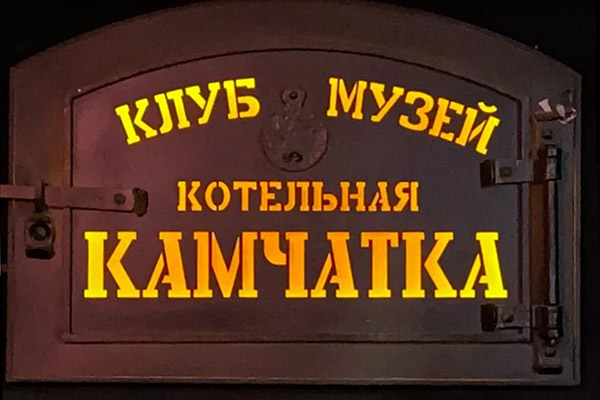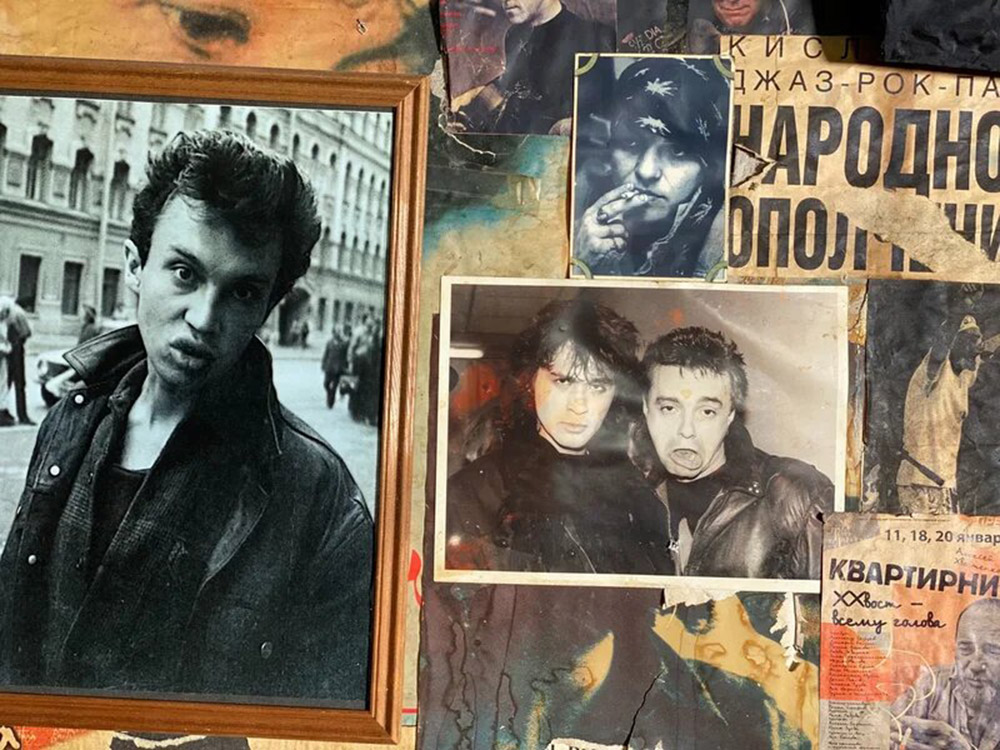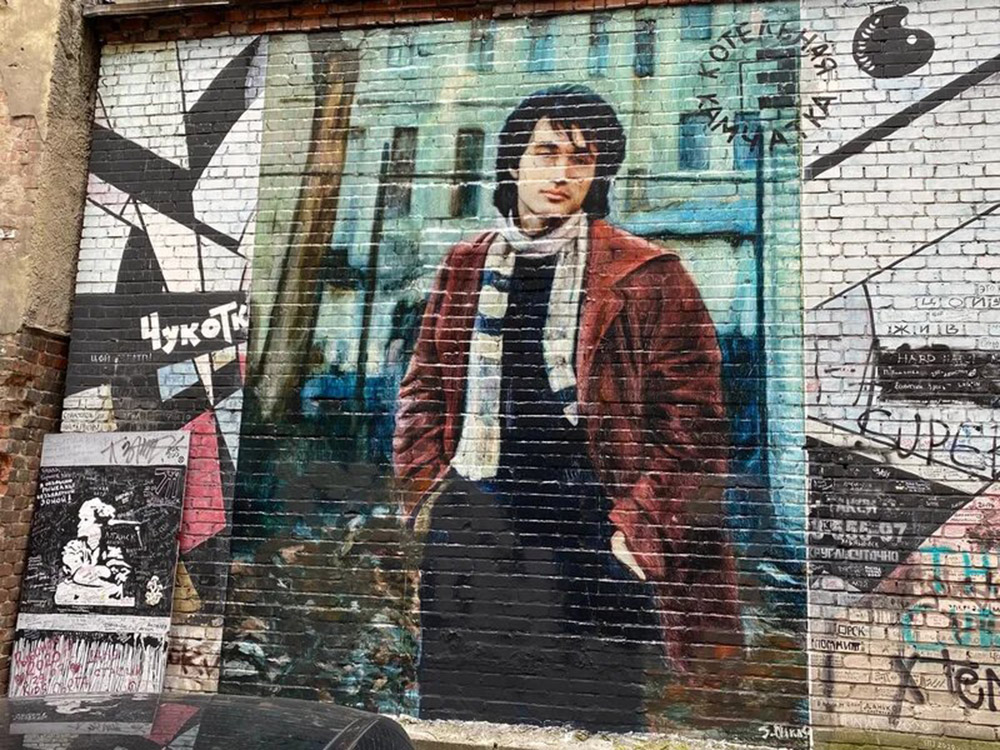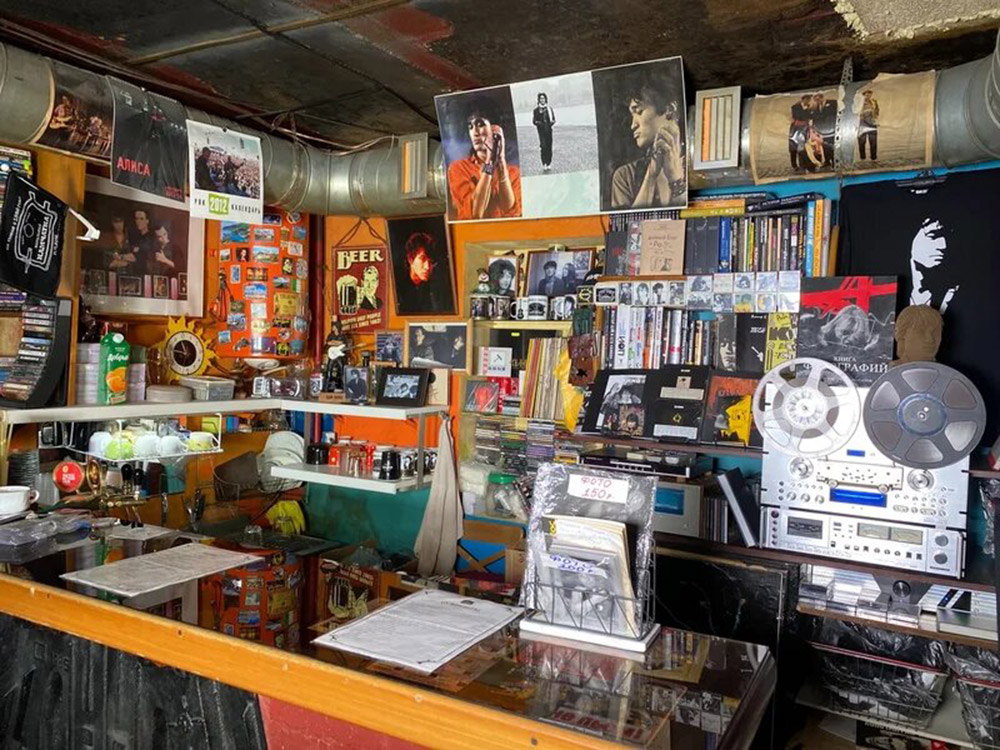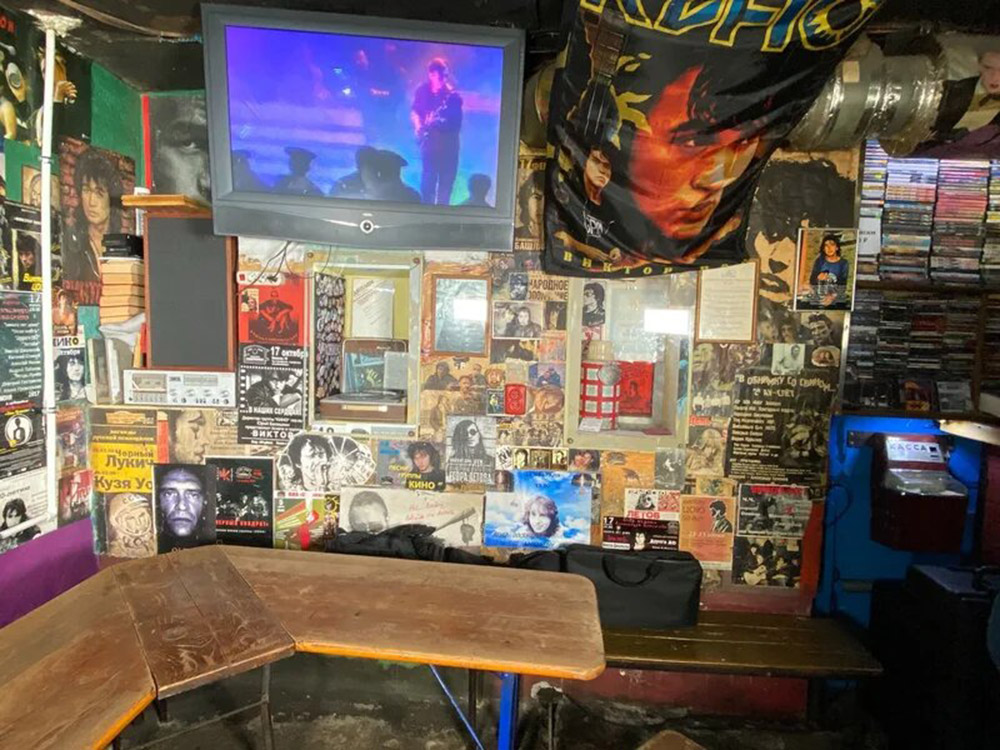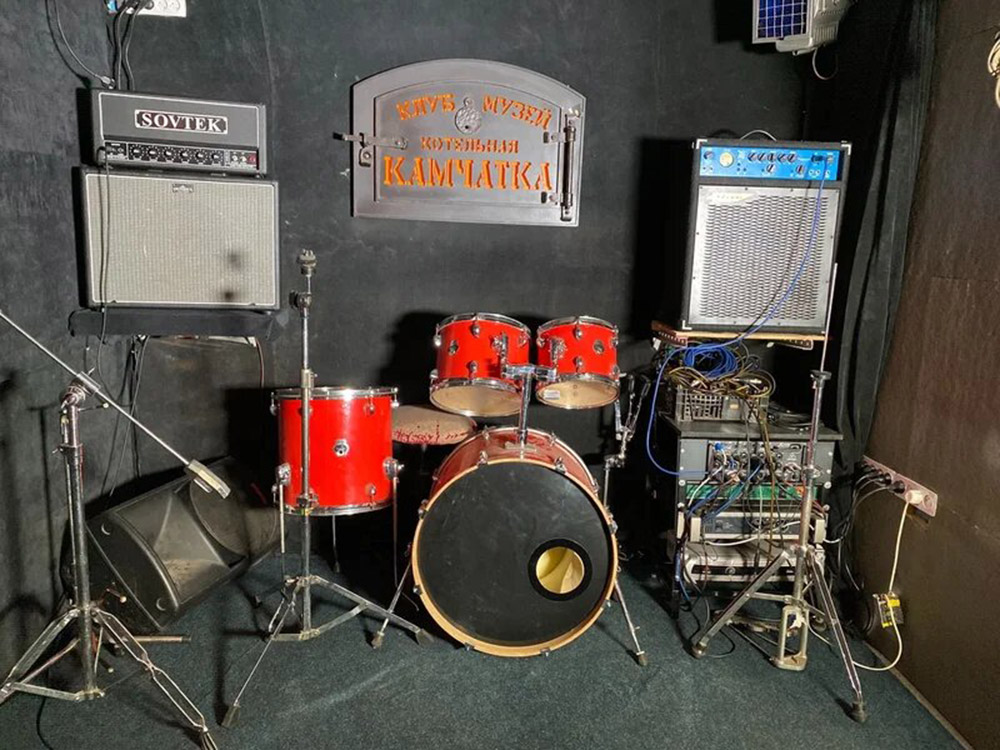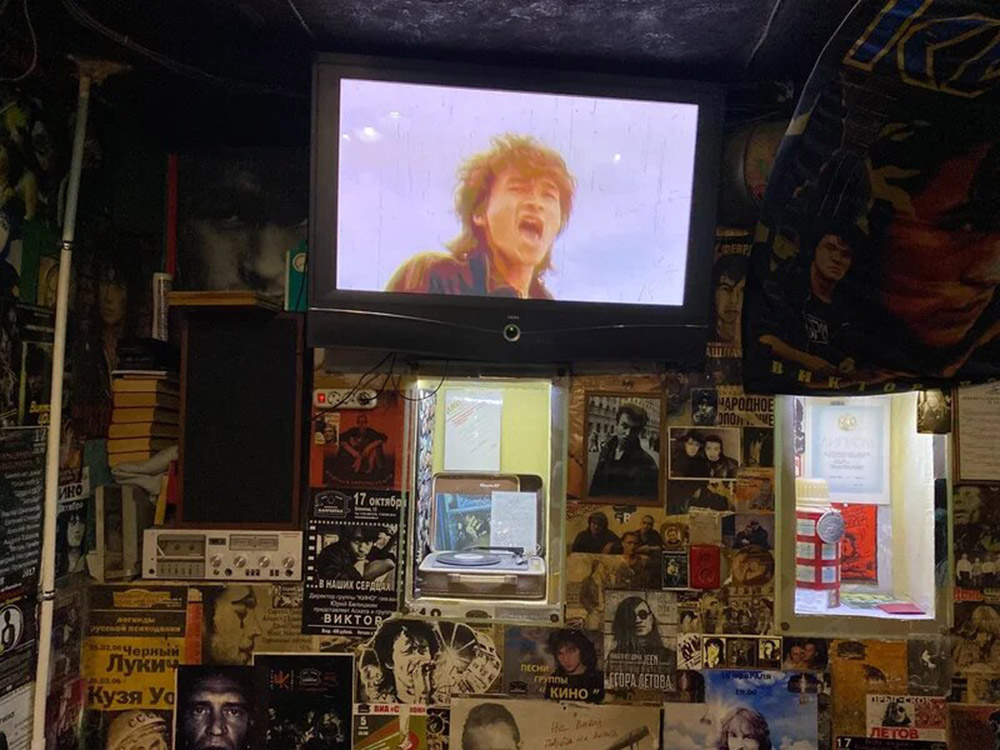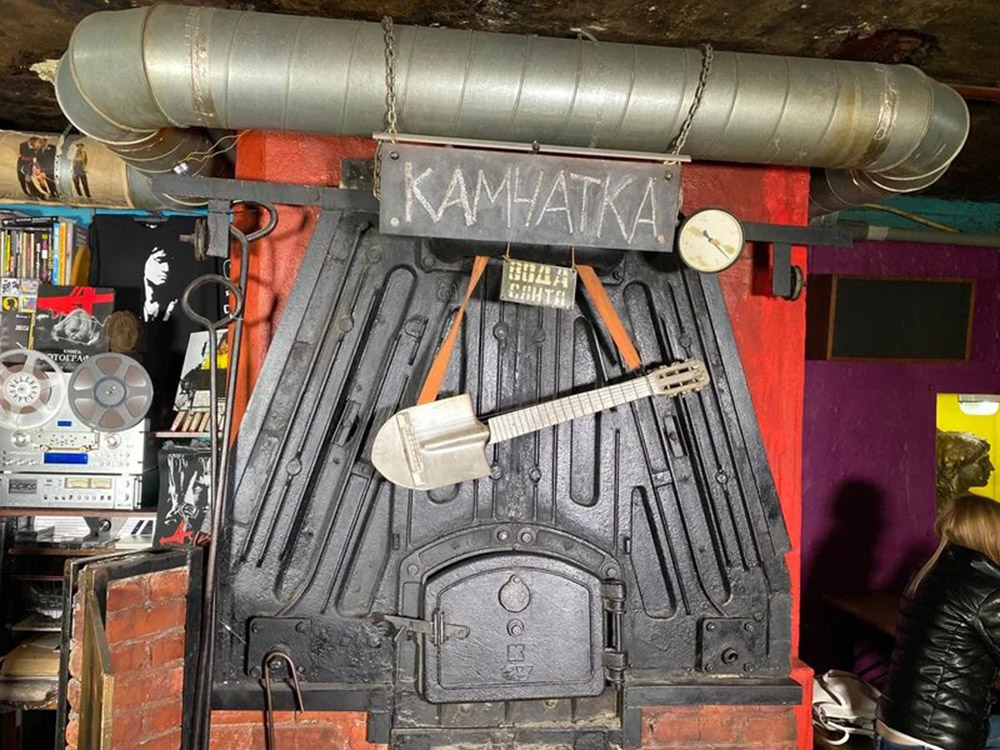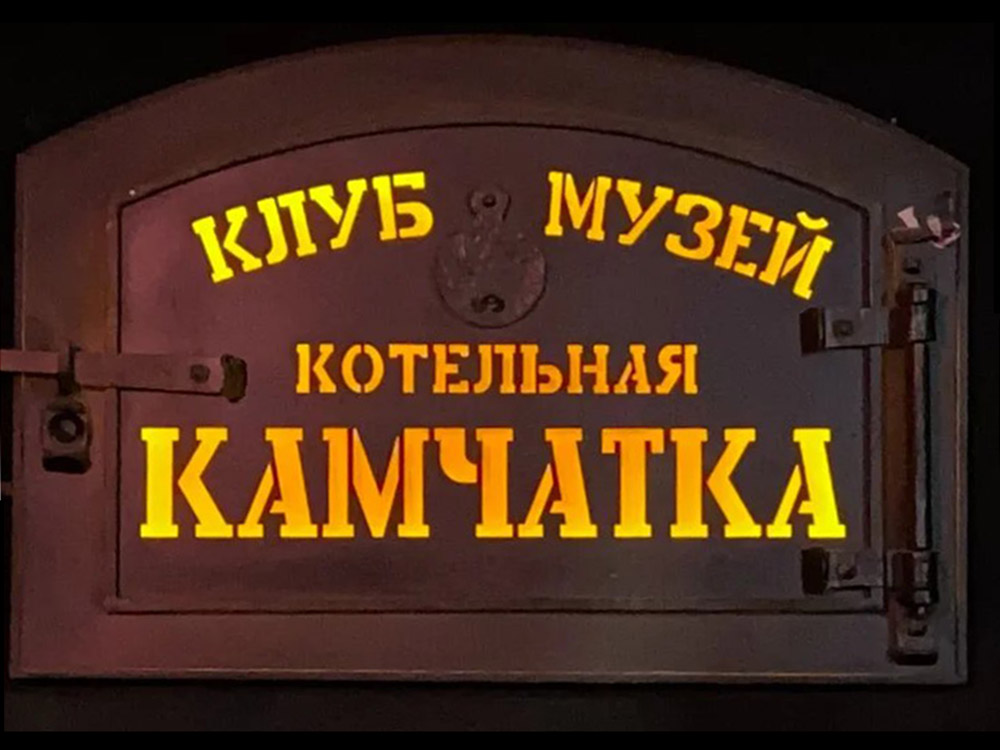The Kamchatka boiler room is a legendary place where many famous people such as Viktor Tsoi, Alexander Bashlachev, Svyatoslav Zaderiy, Andrey Mashnin, Oleg Kotelnikov, Viktor Bondarik, etc. worked as stokers.
Today “Kotelnaya Kamchatka” is both a museum and a music club. It connects two eras, keeping the personal belongings of Tsoi, Bashlachev, Mike and providing an opportunity for young musicians to play their music.
“The history of the KAMCHATKA boiler room began in the autumn of 1986 when Viktor Tsoi and I first came to work here. The boiler room in Building 15 on Blokhin Street was small and very cozy. It provided heat for the women’s dormitory of the 1st Repair and Construction Trust of Leningrad. It was a rather large six-story building built in 1938, a usual corridor-type dormitory with a common lavatory and kitchen on each floor. It didn’t have running hot water and it still doesn’t. On the first floor, directly above the furnace room, there was a boiler room with two large tanks for heating water. Next to the boiler room, there was a shower room, where construction worker girls showered twice a week. First of all, Tsoi and I were sent to get a month-long stoker training, we successfully completed it and began working in November. My first shift was on November 11, 1986. There is an entry in the logbook, and we consider this day to be the birthday of Kamchatka. We were supposed to shift at 9 AM, but it was so frustrating, so we started to shift at 11 PM, which was much better. So Tsoi and I were the first ones, then Tsoi brought Oleg Kotelnikov, who at the time was the design artist of the band Kino, and I invited Slava Zaderia, the leader of the band Alisa.
Next, I brought Bashlachev and Dima Vinnichenko, who was then playing in the Tokyo band. What tied us together was the Leningrad Rock Club, we were all its members at that time. Later, we were joined by Kostya Belyavskiy, the manager of the band Auktyon, and Yasha Seryozha Yalovegin, who wasn’t from the music world directly, but we had worked together as conductors. Viktor Romanovich Bondarik, the regular bass player of the band Auktyon, also came to work with us. He was followed by Zhenya Titov, who played bass guitar in Narodnoe Opolcheniye i AU and later started his own band Titya and Belomorkanal.
We invited our friends who needed both a job and a lot of free time. The boiler room was perfect for that. Even at work, there was a lot of time for self-improvement, you could read, listen to music, play guitar, write poetry, do whatever you wanted. Our job was to go out every two or three hours and feed ten shovels of coal or so into the furnace. It was a bit harder in the cold weather — you had to shovel coal once an hour. And of course, first, you had to bring enough coal for your shift from the yard, and if the coal was frozen, then break it up with a crowbar. At the end of the shift, you also had to clean up slag, take the slag outside, wash the entire furnace room with a hose, take a shower and then wait for the relief.”
Sergey Firsov
